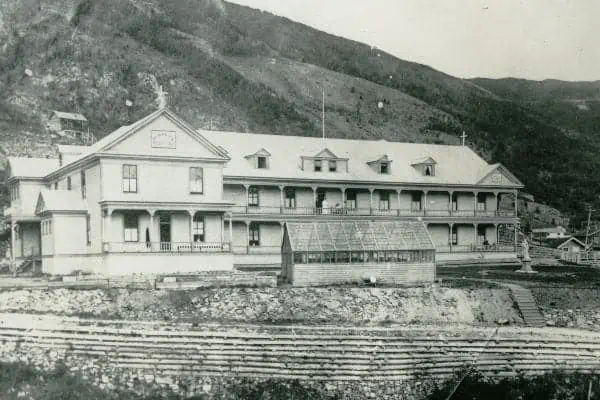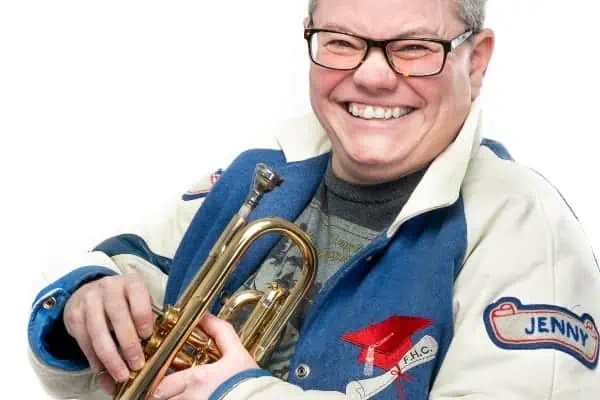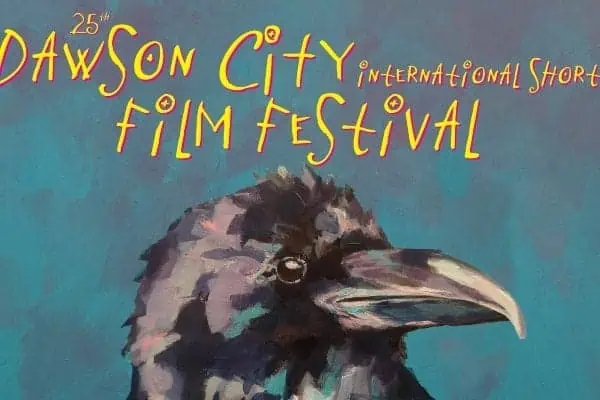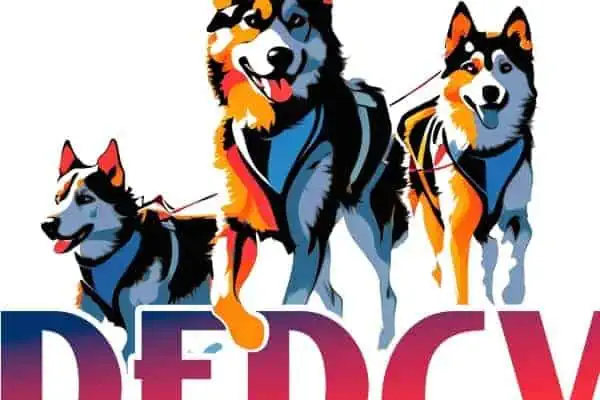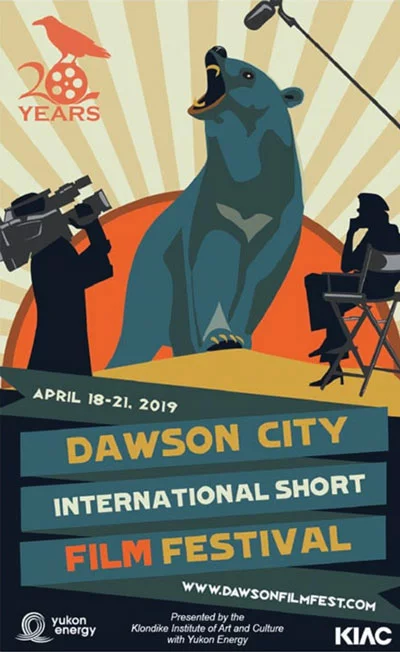
Sokolowski points to the 10 rows of multi-coloured post-it notes on the cabinet doors behind him. He’s figuring out screening locations. Most films will appear on the big screen in the KIAC Ballroom, with capacity crowds filling the seats from Thursday evening to Sunday evening. One screening of aboriginal themed films will be held at the Dänojà Zho Cultural Centre. Before all that can happen though, he has to finish two to three weeks of downloading the digital videos and organizing the playlists.
It’s all digital these days. Thirteen years ago, when he took the job, he remembers receiving VHS tapes and DVDs, with perhaps a one gigabyte file arriving by email. This year, he downloaded three films in one 48 gig file, worrying about whether the local bandwidth could handle it.
“The cameras keep getting better and the files keep getting bigger,” he said, noting these are well beyond the size of the Blu-ray and HD files people are playing on their home systems. The festival will begin, as has become the custom, with one long film on the Thursday evening. Local filmmaker Chris Healey has produced a 73-minute feature called The Winter Folk. Sokolowski said it should attract quite an audience.
“It’s full of lots of Dawsonites and why they live here.”
This is a short film festival, so most of the 85 films will be under 20 minutes in length; indeed some will be much, much shorter. A typical screening will have a mix of animation, documentary, genre fiction and experimental video. Anywhere from eight to 12 pieces will screen in a couple of hours.
“There are a lot of documentary items this year. These tend to be popular in Dawson.”
There is also an increasing number of Yukon films, with 23 coming “from Old Crow to Whitehorse and all parts in between.”
Thirteen years ago there might have been four or five. The number of aboriginal films is also on the rise.
“Indigenous directors are telling their own stories,” said Sokolowski. “Getting access, and being able to make them.”
In the ODD Gallery, Jillian McDonald, former artist-in-residence, will premiere the piece she made while in residence. The video installation shows various Dawsonites, wrapped in gold, shot against various landscapes. It will open formally on Friday and be available at various times during the weekend. There will also be a special 20th Anniversary event on Sunday night.
“For our final screening, each member of our film fest committee has picked one of their favourite films from the last 20 years,” he said. “So it’s going to be a retro screening of what people liked.”
Sokolowski will have to digitize some of those old tapes and DVDs (“They’re stored in boxes out back.”) for this to happen.
The program for the weekend is not yet set, but there will also be a selection of workshops and panel discussions. The annual Trailer Contest is already underway.
“We’re also pleased to be doing a pre-festival workshop with director Caroline Christie. She’s going to be in town editing Suzanne Crocker’s new film and so she’s going to offer an editing workshop on April 7,” said Sokolowski.
SPYA (Screen Production Yukon Association) will be offering a reception for the festival on Saturday. There will also be a youth screening that day. As Easter weekend is later in the season this year, the outdoor pirogue feed and street concert will be able to take place without the members of the band freezing their fingers.

